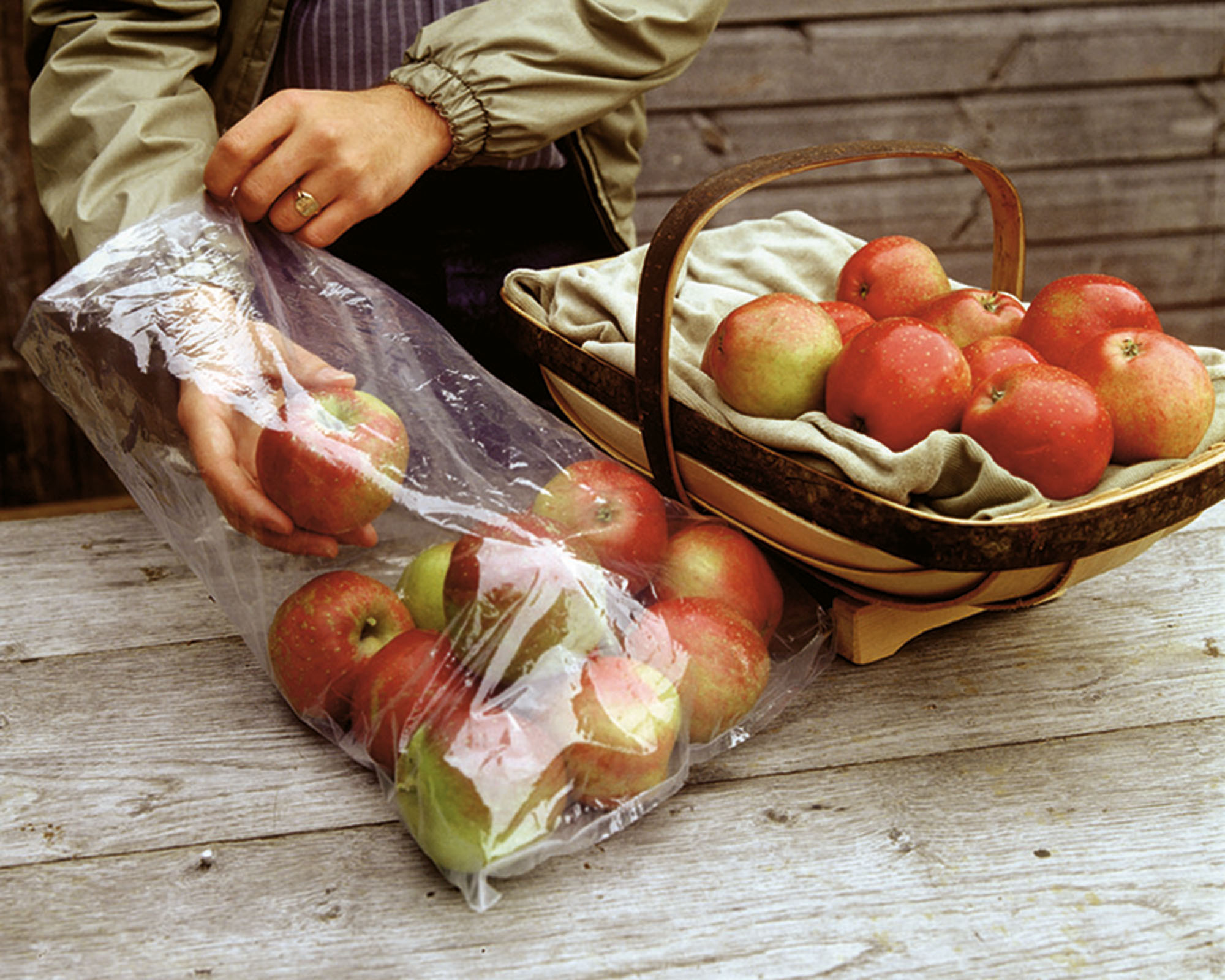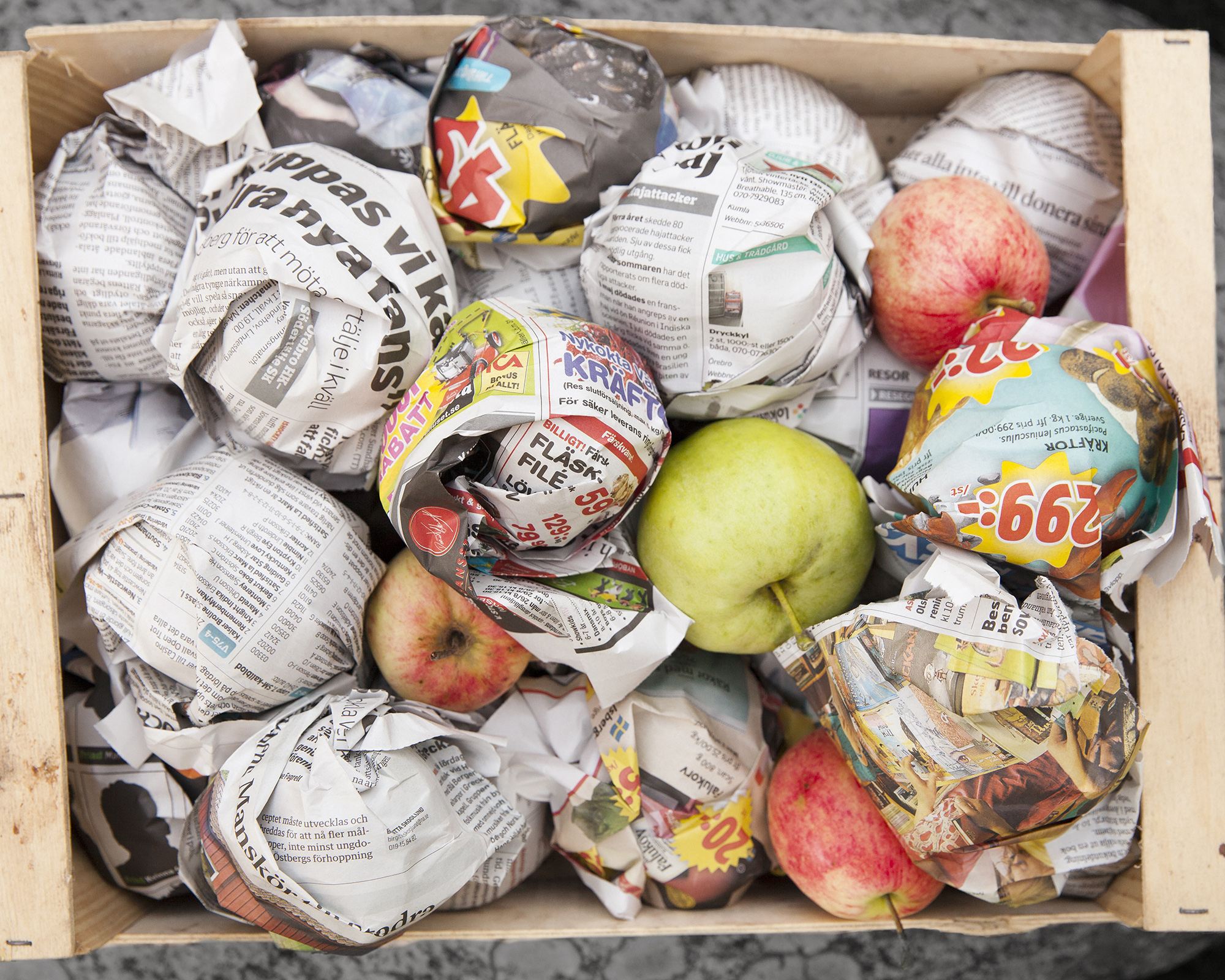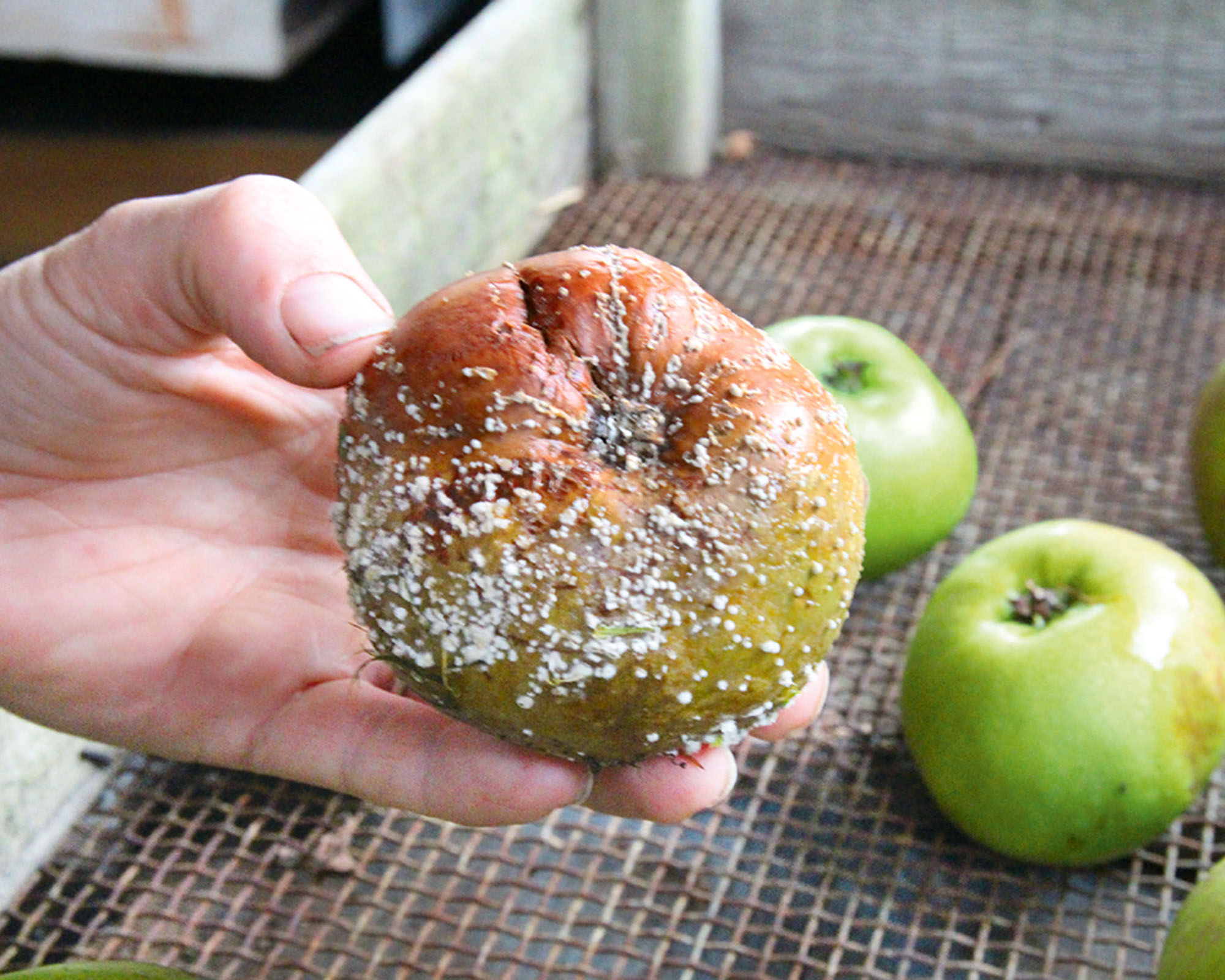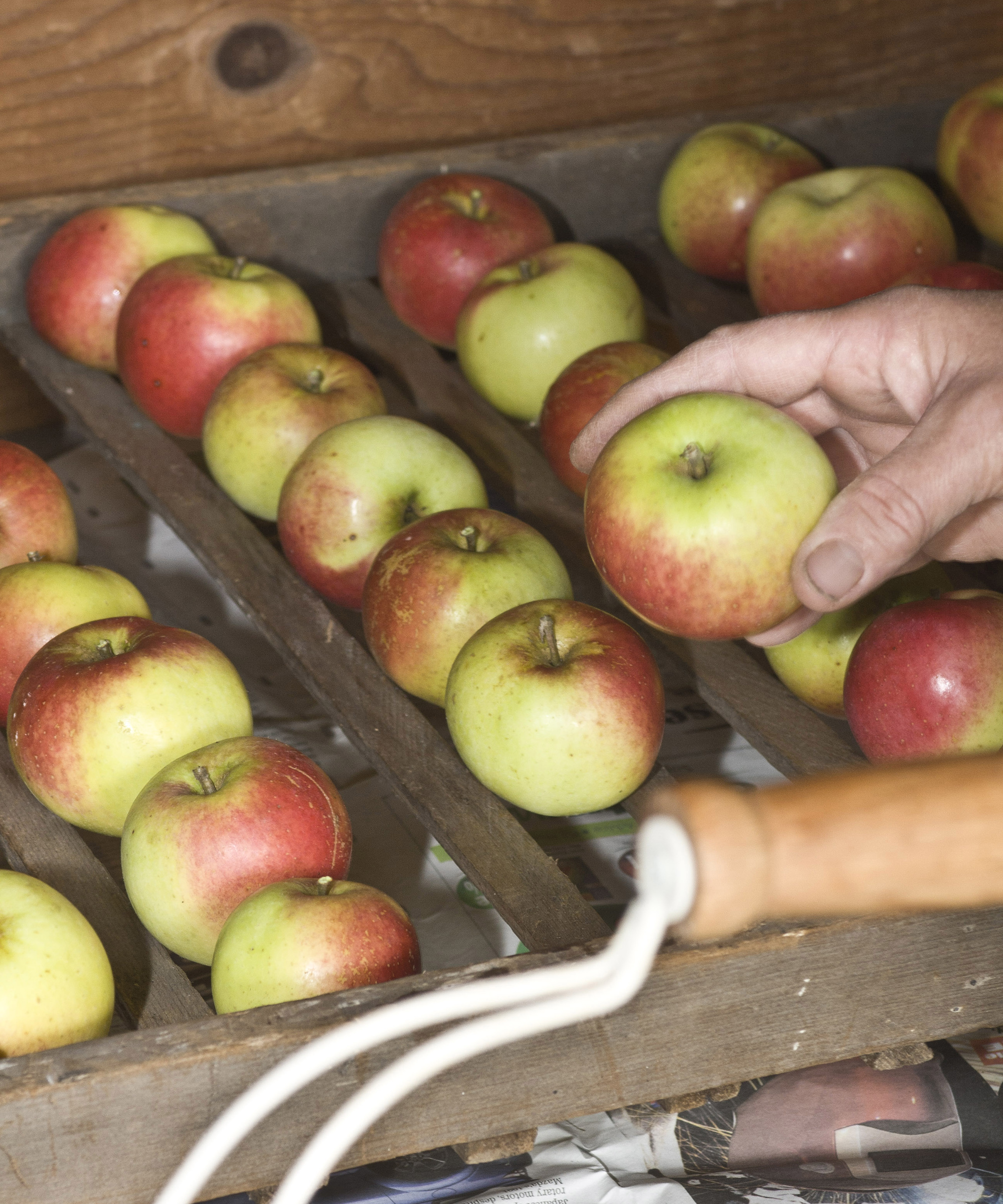Storing apples: how to store your harvested fruit so it lasts longer
When branches are bursting with this delicious fruit, storing apples properly will mean that none go to waste and you can enjoy them for months


Fall is the time to think about storing apples in a way that guards them against rot, and keeps them crunchy and fresh for months.
Once you know how to store apples, it's an easy job. But storing them in the correct way is absolutely key. You might be familiar with a few expressions around rotting apples, this is no coincidence! Apples are susceptible to rotting and once this sets in it can easily spread, destroying an entire harvest.
Thankfully the experts know how to prevent this from happening, and some claim that storing apples from the best fruit trees in the correct way, can even keep them edible and healthy until the following spring.

One method of storing apples is to keep batches in plastic bags with air holes
Expert tips on storing apples
'If you’ve been harvesting apples and you wish to store them, there are a few simple ways you can get these to last longer. First, pick as late in the year as you can: the longer they hang on the trees in your orchard or kitchen garden, the better. However, once they start to drop, they need picking as soon as possible – and likewise if birds or other pests start robbing too many,' says Bob Flowerdew, organic expert for Amateur Gardening.
'It’s not good to store long-storing fruits near others with shorter lives, as these may encourage the keepers to go over,' Bob continues. 'Avoid strong smells, onions and paint, as these can also taint.'

Wrapping individual apples slows the spread of rots
- Pick carefully: This should happen on a dry day. 'Never store windfalls – they’ll not keep long so use them soonest,' advises Amateur Gardening expert Anne Swithinbank. 'When picking, carefully cup and lift each fruit so it comes away with the little stem, (known as the pedicel) attached: if the pedicel is lost the apple won’t keep very long.'
- Reject damaged apples: 'Take care not to bruise the fruit,' says Anne, 'and reject any with any holes or other damage such as those impacted by apple tree diseases – these will simply rot.' And again, don't store fallen fruit, no matter how perfect they appear!
- Leave out early ripening varieties: 'As a general rule, early-ripening varieties such as ‘Discovery’ do not keep well in storage and should be used soon after picking,' says Anne. Mid-season varieties are most commonly stored and there are main ways to do this.
- Wrap in paper: This is the traditional method of storing apples. Don’t store the fruits straightaway but instead leave them exposed in a dry, cool place for a few days to lose some moisture. 'Lay each apple on a cushion of straw in a dry, airy shed for a week to cure,' says Bob Flowerdew. 'Then wrap each one in newspaper and place on a tray – but you can get away with layering them in buckets with shredded paper or straw.' Put these buckets in a cool place somewhere safe from rodents.
- Or try plastic bags: 'The second method is more recent and involves storing apples - usually in about 5 1/2 lbs (2.5kg) batches - in plastic bags,' says gardening expert Steve Bradley. 'With the bags closed but not sealed, and a few holes pierced in the sides of the bag before being placed in a garage or shed and kept cool and as dark as possible.'
- Check fruit regularly: 'With either storage method, it is important to check the stored fruit regularly and remove any showing signs of deterioration,' urges Steve. 'As you may have different varieties which ripen at different rates, try not to mix varieties in the bags or boxes.'

Bob Flowerdew urges: 'Don’t even think about storing any fruits with holes, bruises or rots – and it’s pretty foolish to pick up windfalls, no matter how good they look!'
What is the best way to store fresh apples?
'Choose medium, slightly under-ripe fruit and set on crates or trays, not touching,' advises Anne Swithinbank. 'Keep varieties separate, otherwise those ripening first will hasten others. Guard your store against mice and check regularly, removing any rotting fruits.'
To harvest and store the best fruit, pick regularly from your backyard trees, handling carefully. 'Fallen fruit is usually damaged and not likely to keep well. Lift the apple, and if it is ready for harvest, it will come away clean and easily with the stalk attached,' Anne continues.
'Wrapping apples individually in tissue paper helps them to stay fresh but it is fiddly. I often keep in plastic bags with several air holes and the top loosely folded,' says Anne.
'In a cool, slightly humid place with a temperature of 38-45˚F (3-7˚C), blemish-free apples store well on racks. Yet they eventually wrinkle if too warm and dry.'
Wooden apple crates are readily available on Amazon, and will make for a decorative feature in your shed or garage too.

Make sure you keep your stored fruit away from strong-smelling substances such as paint or other veg like onions
Can you store apples in the fridge?
'If you’ve only got a few apples to store, you can simply place them in a large plastic bag in the bottom of your fridge until they’re needed,' says fruit and veg expert Lucy Chamberlain. 'Don’t seal the bag up because you want any excess moisture to escape.
If you've been learning how to prune apple trees to encourage a bumper crop, Lucy says that you will you’ll need a dedicated store to keep them as fresh as possible for longer.

Teresa has worked as an Editor on a number of gardening magazines for three years now. So she is lucky enough to see and write about gardening across all sizes, budgets and abilities. She recently moved into her first home and the garden is a real project! Currently she is relishing planning her own design and planting schemes. What she is most passionate about when it comes to gardening are the positive effects it has on our mental health to grow and care for plants, as well as being great for the environment too and help provide food and shelter for wildlife.
